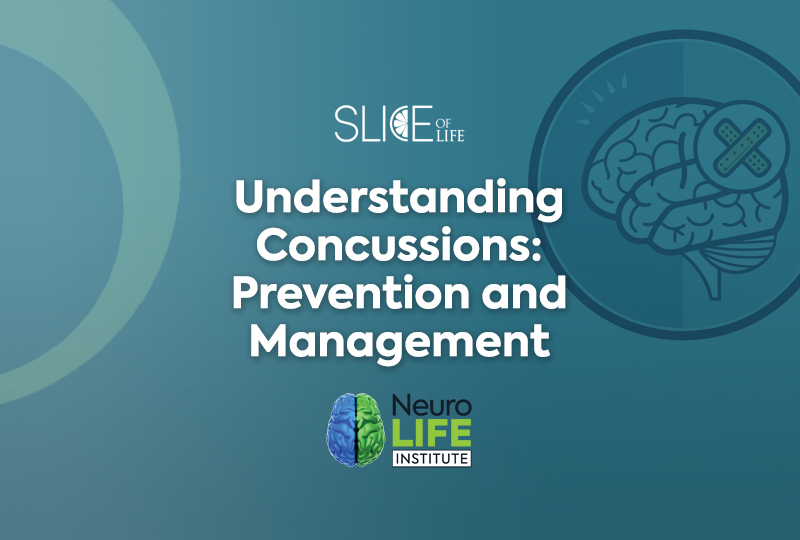Concussions are a significant concern, particularly for athletes, but they can affect anyone. At NeuroLIFE Institute (NLI), we see many patients who come to us after experiencing a head injury. While our primary goal is to reduce symptoms, we also emphasize the importance of prevention.
One of the key aspects of preventing concussions is understanding the baseline functionality of the neck and eyes. Assessing how the neck moves, its strength and the performance of eye movements can be crucial in reducing the likelihood of a concussion. These assessments help us understand potential weaknesses that could predispose an individual to a concussion.
Concussion Prevention Strategies
- Neck Strengthening Exercises: Strengthening the neck muscles can help absorb shocks and reduce the risk of whiplash injuries. Simple exercises can be done at home or even while driving:
- Isometric Exercises: Press your hand against the side of your head and push gently for three seconds, then switch sides. Repeat this 10 times on each side.
- Backward Resistance: Press the back of your head against your hand or a headrest for three seconds. Repeat this 10 times.
- Balance Training: Improving balance can help prevent falls and other accidents that may lead to concussions. Try these exercises daily:
- Single-Leg Balance: Stand on one leg for 30 seconds, then switch legs. For added challenge, try closing your eyes.
- Progressive Challenges: Use a balance board or uneven surfaces to further enhance your stability.
Watch the video below for further demonstration.
Early intervention is crucial for concussion management. At NLI, we encourage anyone who has experienced a concussion, even without current symptoms, to undergo a neurocognitive screen. This helps us identify any underlying issues that might predispose them to further injury or neurodegeneration.
Children are naturally active and generally have good balance, but today’s sedentary lifestyles can affect this. Encouraging upright posture and incorporating movement into playtime can be beneficial. Games like “Red Light, Green Light” or “Freeze Tag” can help maintain and improve their balance and coordination.
Prevention is not just about avoiding head injuries but also about maintaining a balanced and strong body. At Life University’s NeuroLIFE Institute, we provide comprehensive assessments and personalized exercise plans to help reduce the risk of concussions. Even if you have no symptoms, a baseline assessment can be invaluable.
For more information or to schedule an appointment, visit NeuroLIFE Institute.


Social Media